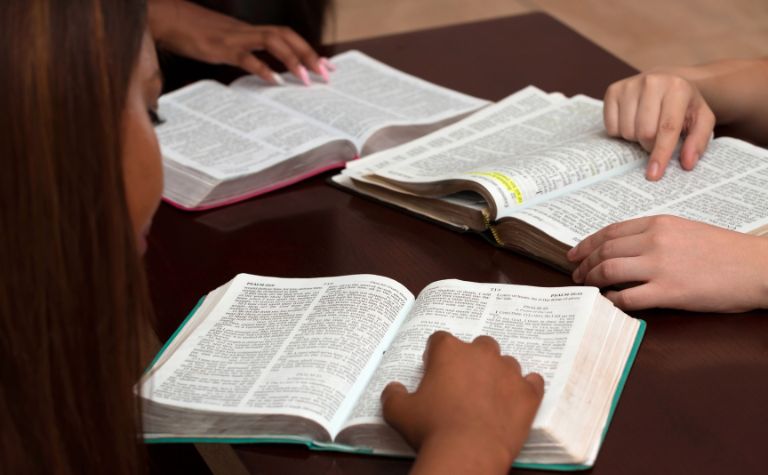In the world today, the word “Zion” has multiple uses. For example, some people are named Zion. There are also towns, colleges, songs, and movies with Zion in their title. While some people know that the word comes from the Bible, its biblical significance has been lost because of how people use it today. So, many are curious to know what it means.
The most common way that the Bible uses the word Zion is to describe the city of God during the future reign of the Messiah. Yet, in other passages, Zion refers to a section of Jerusalem in David’s day, the temple in Solomon’s day, the capital of Judah, and the heavenly Jerusalem.
What does the Hebrew word for Zion mean? Where does it originate? What books of the Bible use Zion the most? How and where does the New Testament use the word? How did its meaning develop over time? Keep reading to learn the answers to these questions and others.
Also, see What Dog Breed Is Mentioned in the Bible? to learn more.

The Meaning of Zion and Its First Mention in the Bible
Scholars debate the origin of the word Zion. A common view is that it came from an Arabic word that referred to protecting or defending a location, like a fortress.
Whatever its source, Old Testament writers used it according to their worldview. All the biblical uses of Zion relate to each other and sometimes overlap in meaning.
In modern English Bibles, “Zion” appears over 150 times. It occurs most in the book of Psalms, then in Isaiah. It also appears in Jeremiah and Lamentations several times. However, it only appears seven times in the New Testament (Matt. 21:5; John 12:15; Rom. 9:33, 11:26; Heb. 12:22; 1 Pet. 2:6; and Rev. 14:1).
For example, in the story of the Triumphal Entry, John quotes Zechariah 9:9, “Fear not, daughter of Zion; behold, your king is coming, sitting on a donkey’s colt!” (ESV).
Revelation 14:1, a description of Jesus and the 144,000, is another example: “Then I looked, and behold, on Mount Zion stood the Lamb, and with him 144,000 who had his name and his Father’s name written on their foreheads” (ESV).
Zion is a place name
Historical evidence suggests that the Israelites first used the Hebrew word (Tsiyyon, צִיּוֹן) translated as “Zion,” to describe a section of land, a hill, or a mountain.
One Bible scholar writes that the word “originally referred to the fortified hill of pre-Israelite Jerusalem between the Kedron and Tyropean Valleys.” [1] A Hebrew scholar similarly describes the origin of Zion: “the fortified mound between the Kidron and the Tyropean valley.” [2]
The word first appears in the Old Testament in the context of David’s conquest of Jerusalem. 2 Samuel 5:7 reads, “Nevertheless, David took the stronghold of Zion, that is, the city of David.” (Also see. 1 Chron. 11:5.)
The meaning of Zion grew over time
The Old Testament makes clear Zion’s meaning gradually developed to describe greater realities than a particular plot of land in ancient Israel. A gradual change like this isn’t rare.
Another example of this phenomenon is that one of the Greek words translated as “hell” in the New Testament (geenna, γέεννα) originally described a piece of land west and south of Jerusalem. However, over time, the word developed another meaning, referring to the place of punishment after physical death.
Also, see What Is Circumcision in the Bible? to learn more.

Zion describes the bright future of God’s people
Isaiah loves the idea of Zion. One Isaiah commentator writes, “Zion is a favorite term of Isaiah’s, occurring forty-seven times in the book.” He adds, “Micah shows a similar frequency with nine occurrences in four chapters. The only other book where Zion occurs so often is the Psalms, where it appears twenty-eight times.” [3]
Isaiah’s use of Zion is rooted in its definition as a place name. However, his poetic use of the word expands its meaning, so its symbolic importance can refer to Jerusalem, Israel, and God’s people. Depending on the context, Zion may describe a place or people in this or something in heaven.
One way Isaiah uses Zion is in a description of the future of God’s people. “Zion will be redeemed,” explains one scholar. “She will not be cast off. Her chosenness and her beauty are not passing… it is the desolation and destruction which are passing.” [4] Isaiah 1:27, 28:16, and 33:5 are examples of this.
- Isaiah 1:27, “Zion shall be redeemed by justice, and those in her who repent, by righteousness.”
- Isaiah 28:16, “Therefore thus says the Lord God, ‘Behold, I am the one who has laid as a foundation in Zion, a stone, a tested stone, a precious cornerstone, of a sure foundation: Whoever believes will not be in haste.'”
- Isaiah 33:5, “The Lord is exalted, for he dwells on high; he will fill Zion with justice and righteousness.”
Also, see What Does Covet Mean in the Bible? to learn more.

Zion refers to the heavenly Jerusalem
The Bible teaches the city of Jerusalem in this world is a shadow of the city of God in heaven. Isaiah, the writer of Hebrews, and John in Revelation each use the word Zion to describe this place.
- Isaiah 60:14, “The sons of those who afflicted you shall come bending low to you, and all who despised you shall bow down at your feet; they shall call you the City of the Lord, the Zion of the Holy One of Israel.”
- Hebrews 12:22, “But you have come to Mount Zion and to the city of the living God, the heavenly Jerusalem, and to innumerable angels in festal gathering.”
- Revelation 14:1, “Then I looked, and behold, on Mount Zion stood the Lamb, and with him 144,000 who had his name and his Father’s name written on their foreheads.”
Zion describes Solomon’s temple
The book of Psalms poetically uses the word Zion in several passages. It generally conveys hope for God’s people and praise for Jerusalem and the temple. One scholar on the Psalms writes, “The designation ‘Zion’ expresses hope and reminds us of God’s promises to David sealed by his presence in the temple.” [5]
- Psalm 2:6, “As for me, I have set my King on Zion, my holy hill.”
- Psalm 48:2, “Beautiful in elevation, is the joy of all the earth, Mount Zion, in the far north, the city of the great King.”
- Psalm 132:13, “For the LORD has chosen Zion; he has desired it for his dwelling place.”
Also, see What Does 222 Mean in the Bible? to learn more.
References:
[1] Holman Bible Dictionary. p. 1701-1702.
[2] Theological Wordbook of the Old Testament. p. 764.
[3] The Book of Isaiah by John Oswalt. NICOT. p. 109.
[4] Oswalt. p. 109.
[5] Psalms by Willem VanGemeren. EBCR. p. 94.
Related Questions
Regular Bible reading is a valuable habit, as Scripture is God's message to people. However, the Bible's 66 distinct books, featuring various authors, settings, and themes, can make it challenging...
Catholic vs. Protestant vs. Orthodox: What's the Difference?
Roman Catholicism, Protestant Christianity, and the Eastern Orthodox Church are the three historical branches of the Christian religion. Each tradition traces its doctrines and practices to the New...
